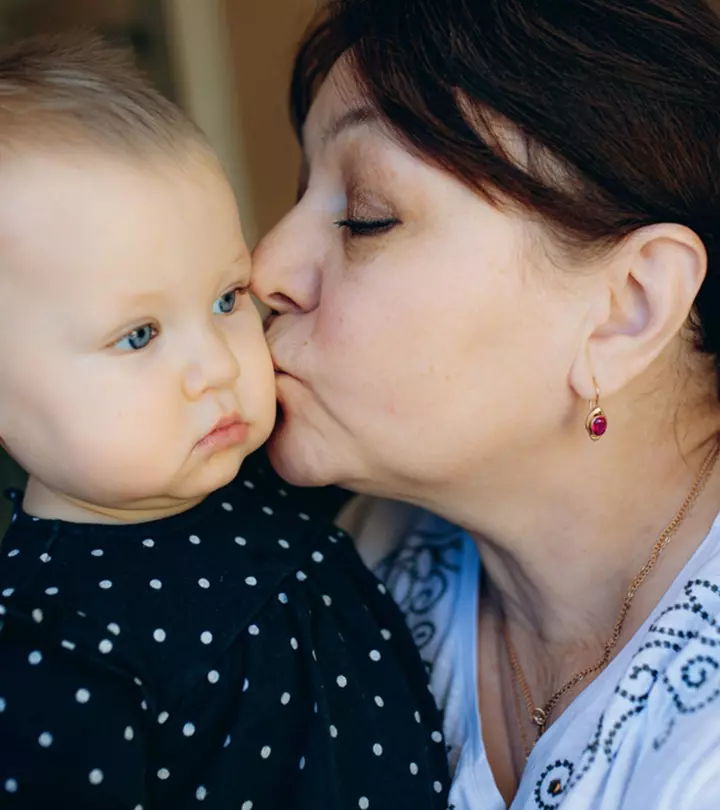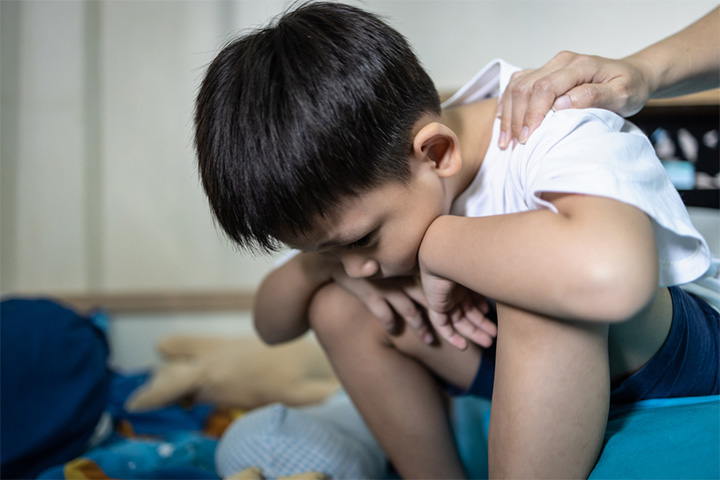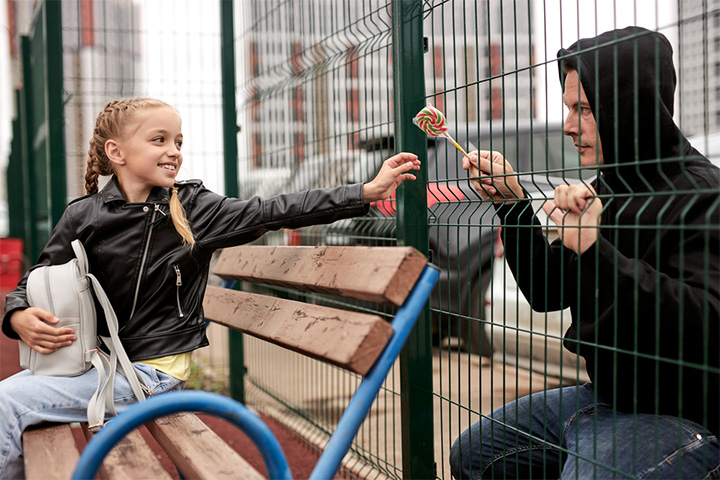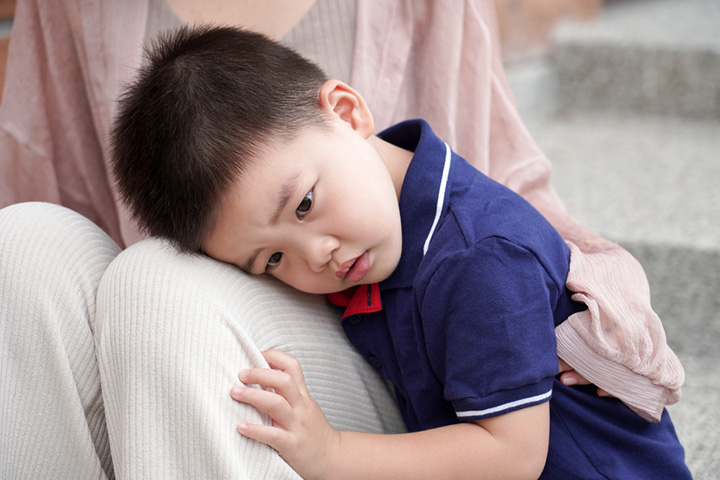
Image: Shutterstock
Giving kisses, hugs, and holding the hands of a kid are all signs of affection. Parents, siblings, and everyone always does it to show love for the little one. You might have experienced it in childhood or even done it several times. But this spreading of love goes only one way. And it won’t be a surprise if the kids are uncomfortable with all this. In these unnoticed moments, you forget how deeply it can impact a kid’s mentality and overall personality.
Consent is one of the most important lessons that every person should be aware of from an early age. So why do some parents forget about it when it comes to their child? Let’s dive right into why parents should not be encouraging this not-so-innocent gesture at any cost for their kids.
1. It Makes Kids Feel Your Disregard For Their Comfort
Image: Shutterstock
While it’s standard practice to show your distant relatives affection during get-togethers or special celebrations, be aware that your child may not be familiar with it yet. Additionally, if you force your child to hug their uncle or aunt despite their objections, they will begin to believe that you prioritize the stranger’s comfort over their own. And once your kid feels that their parents are exploiting their choice and convenience, it might lead to many more complications in their overall mentality and relationship building.
2. It Makes Them Believe That Relatives Can’t Be Sexual Abusers
Image: Shutterstock
You are teaching your child that forceful affection is okay and that family members can never be abusive by having them give and accept cuddles and kisses from someone they hardly know. This way, they get more vulnerable to being a victim of sexual assault and might not even complain or express their emotions to anyone. Even worse, if a relative gets used to treating someone from a young age like that, they’ll keep doing it again and again in the name of having fun.
3. It May Confuse Them Into Believing Strangers
Image: Shutterstock
You may advise your kids to keep their distance from outsiders and never accept anything from them, but then you may instruct them to kiss and hug a random person. Sure, family members are family and are not strangers, but children are nonetheless impressionable. The child is confused by these behaviors and begins to doubt their ability to place their faith in others.
4. It Might Make Them Introvert Or Shy
Image: Shutterstock
It is believed that kids can better distinguish between positive and negative touch. For example, there may be a reason your kid cries when every other person holds them and resists being placed in their arms. On the other hand, the cause for young children and toddlers may sometimes result from something a family member said or did to them. Wait until your visitors have left before asking your kids polite questions about why they didn’t want to meet their relative. This way, you’ll understand the situation better and can respond accordingly if the case is terrible.
5. It Makes Them Believe That They Don’t Have Control Over Their Body
Image: Shutterstock
When kids experience such situations occasionally, they tend to believe that they can’t decide how they want their bodies to be treated. This act makes them lose their self-confidence, which might also impact their personal relationships with close family members. Moreover, these experiences will make them lose hope instantly when they get into real trouble and situations where they are being a victim of assault.
6. It Makes Them Feel Elders Can Do Anything If They Want To
Image: Shutterstock
Children pick up lessons from their surroundings as well as their parents. For example, when you let distant relatives you hardly know embrace and kiss you on the cheek each time you see them, they begin to see the gesture as usual. Teaching your youngster the distinction between “good” and “bad” touch is crucial. It’s essential to make them say no and have the realization that their parents will support them if they do so.
“Giving goodbye kisses to your Aunt ” requests from parents like these can make a little kid’s experience unassuming at its best. Being a parent, kids are not just legal property. They are their responsibility for a lifetime. So, it’s unacceptable and unappreciated for parents to forcefully ask their young ones to get physically in contact with someone they might barely know. And a kid will only understand the importance of the term consent when they get to make a choice. So, do let us know your experience of forced greeting with a relative or elder in the comment section below.


















